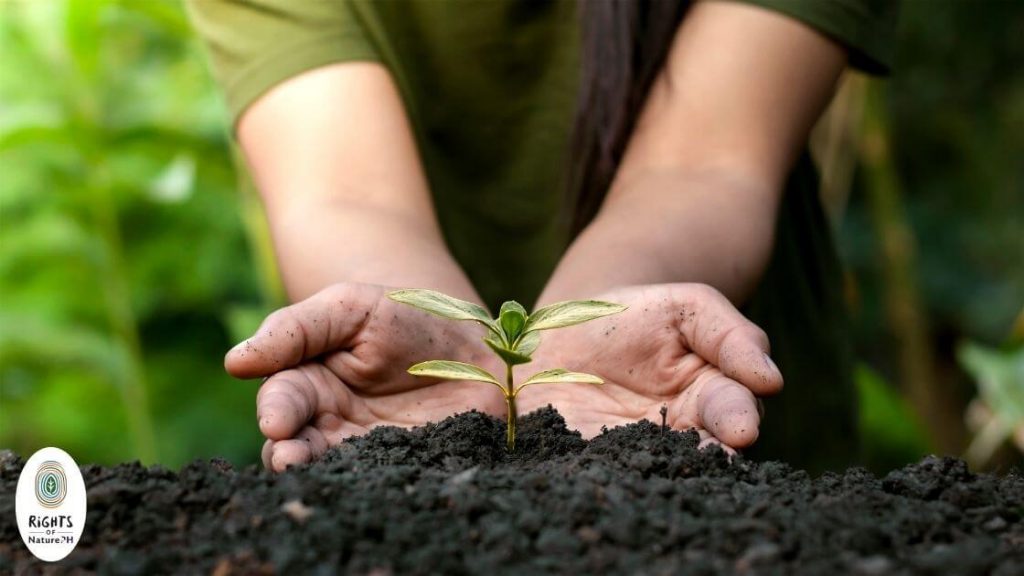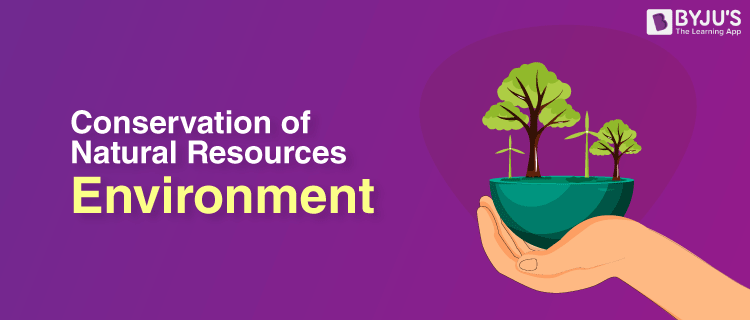Conservation of natural resources involves managing and protecting Earth’s resources to ensure their sustainability. It is crucial for maintaining ecological balance and supporting life.
Natural resources are finite and essential for human survival and economic development. Effective conservation strategies include reducing waste, recycling materials, and promoting sustainable practices. Renewable resources like solar and wind energy offer alternatives to depleting fossil fuels. Protecting forests, water bodies, and wildlife habitats prevents biodiversity loss.
Governments and organizations play a key role in implementing policies and educating the public. Individual efforts, such as reducing energy consumption and supporting eco-friendly products, also make a significant impact. By prioritizing conservation, we safeguard resources for future generations and foster a healthier planet.

Credit: rightsofnature.org.ph
Importance Of Natural Resources
Natural resources are essential for our survival and well-being. They provide us with food, water, and energy. Conserving these resources is crucial for future generations.
Economic Value
Natural resources have a significant economic value. They drive industries and create jobs. For instance, forests provide timber, which is used in construction and furniture-making. Water resources are vital for agriculture and manufacturing.
Here’s a table showing the economic value of various natural resources:
| Resource | Economic Use | Industry |
|---|---|---|
| Forests | Timber | Construction, Furniture |
| Water | Irrigation | Agriculture |
| Minerals | Raw Materials | Manufacturing |
Biodiversity Significance
Natural resources play a key role in biodiversity. Forests and oceans are home to countless species. They provide habitats and food sources.
Maintaining biodiversity is essential. It ensures ecosystem stability and resilience. Here are some points on biodiversity significance:
- Forests support a wide range of plants and animals.
- Oceans provide habitats for marine life.
- Wetlands are crucial for bird species.

Credit: www.youtube.com
Current Challenges
The conservation of natural resources faces many obstacles today. These challenges threaten our environment and future. Understanding these issues is crucial for effective solutions. Below, we explore the most pressing problems.
Resource Depletion
Resource depletion is a serious issue. Our planet’s resources are finite. Overuse of these resources leads to shortages. Key resources affected include:
- Water – Freshwater sources are drying up.
- Forests – Deforestation reduces oxygen production.
- Fossil Fuels – Oil, coal, and gas reserves are depleting.
- Minerals – Rare minerals are becoming scarce.
The rapid consumption rate is unsustainable. We need to adopt sustainable practices to conserve these resources for future generations.
Pollution Impact
Pollution significantly affects natural resources. It harms ecosystems and human health. Key pollution types include:
| Pollution Type | Effects |
|---|---|
| Air Pollution | Causes respiratory issues and climate change. |
| Water Pollution | Contaminates drinking water and aquatic habitats. |
| Soil Pollution | Reduces soil fertility and harms plant life. |
Pollution sources include industrial waste, vehicle emissions, and chemical spills. Reducing pollution requires strict regulations and cleaner technologies.
Sustainable Practices
Sustainable practices help protect our planet. They ensure resources last longer. These practices include using renewable energy and saving water. Let’s explore these ideas.
Renewable Energy
Renewable energy comes from natural sources. These sources include the sun, wind, and water. They never run out.
Using renewable energy reduces pollution. It helps save natural resources. Solar panels capture sunlight to make electricity. Wind turbines use wind to generate power. Hydropower plants use flowing water to create energy.
Here’s a table showing different types of renewable energy:
| Type | Source | Benefits |
|---|---|---|
| Solar | Sunlight | Abundant and reduces electricity bills |
| Wind | Wind | Low operating costs and clean energy |
| Hydropower | Flowing Water | Reliable and cost-effective |
Water Conservation
Water is a vital resource. We must use it wisely. Water conservation means using water efficiently. This practice helps ensure there’s enough for everyone.
Here are some ways to save water:
- Fix leaks promptly.
- Take shorter showers.
- Turn off the tap while brushing teeth.
- Use a broom to clean driveways.
- Install low-flow fixtures.
Watering plants wisely is also important. Water plants in the early morning. This reduces evaporation. Use a watering can instead of a hose.

Credit: byjus.com
Community Involvement
Community involvement is crucial for the conservation of natural resources. Engaging local communities ensures sustainable practices and long-term success. Active participation from residents helps in preserving our environment.
Local Initiatives
Local initiatives play a vital role in resource conservation. Communities can start clean-up drives to keep natural spaces free from litter. These drives foster a sense of responsibility among residents.
Another effective measure is the establishment of community gardens. These gardens promote sustainable agriculture and provide fresh produce. They also serve as a learning ground for eco-friendly practices.
Residents can also form neighborhood watch groups to monitor and report illegal activities. This helps in protecting wildlife and natural habitats.
Educational Programs
Educational programs are key to raising awareness about resource conservation. Schools can integrate environmental education into their curriculum. This teaches children the importance of preserving natural resources early on.
Workshops and seminars can be organized for adults. These events provide valuable information on topics like waste management and energy conservation.
Community centers can offer free classes on sustainable living practices. Topics can include composting, recycling, and water conservation. These classes equip residents with the knowledge needed to make eco-friendly choices.
Additionally, creating information booths at local events can spread awareness. These booths can distribute pamphlets and educational materials on conservation.
| Initiative | Description |
|---|---|
| Clean-up Drives | Organize events to clean local parks and rivers. |
| Community Gardens | Promote sustainable agriculture and provide fresh produce. |
| Neighborhood Watch | Monitor and report illegal activities harming the environment. |
| Environmental Education | Teach children the importance of natural resource conservation. |
| Workshops and Seminars | Provide information on waste management and energy conservation. |
| Free Classes | Offer training on composting, recycling, and water conservation. |
| Information Booths | Distribute educational materials at local events. |
Future Innovations
The future of natural resource conservation looks promising. With new technologies and smart policies, we can save our planet. Let’s explore the innovations shaping this future.
Technological Advancements
Technology is playing a crucial role in resource conservation. Smart devices help monitor and manage resources efficiently.
- Water-saving irrigation systems: These systems use sensors to control water flow.
- Renewable energy sources: Solar and wind energy reduce reliance on fossil fuels.
- Artificial Intelligence (AI): AI helps predict resource needs and optimize usage.
- Recycling technologies: New machines can recycle more types of materials.
These advancements help reduce waste and preserve resources for future generations.
Policy Development
Policies are essential for the sustainable use of natural resources. Governments and organizations are creating new rules.
| Policy Type | Description |
|---|---|
| Carbon Emission Laws | Limits the amount of carbon companies can emit. |
| Protected Areas | Designates land for conservation, restricting human activities. |
| Water Usage Regulations | Controls how water is used and distributed. |
These policies help manage resources wisely. They ensure a balanced and sustainable approach.
Frequently Asked Questions
What Is Conservation Of Natural Resources?
Conservation of natural resources involves managing and protecting Earth’s resources to ensure their sustainability for future generations.
Why Is Conserving Natural Resources Important?
Conserving natural resources helps maintain biodiversity, ensures sustainable use, and supports the health of the environment and human life.
How Can We Conserve Natural Resources?
We can conserve natural resources by reducing waste, recycling, using renewable energy, and practicing sustainable farming and fishing.
Conclusion
Protecting natural resources is crucial for our future. Every small action counts towards sustainable living. Adopt eco-friendly habits daily. Together, we can ensure a healthier planet. Support conservation efforts and educate others. Let’s preserve nature’s beauty for generations to come.
Your efforts make a significant difference. Start today!
Leave a Reply